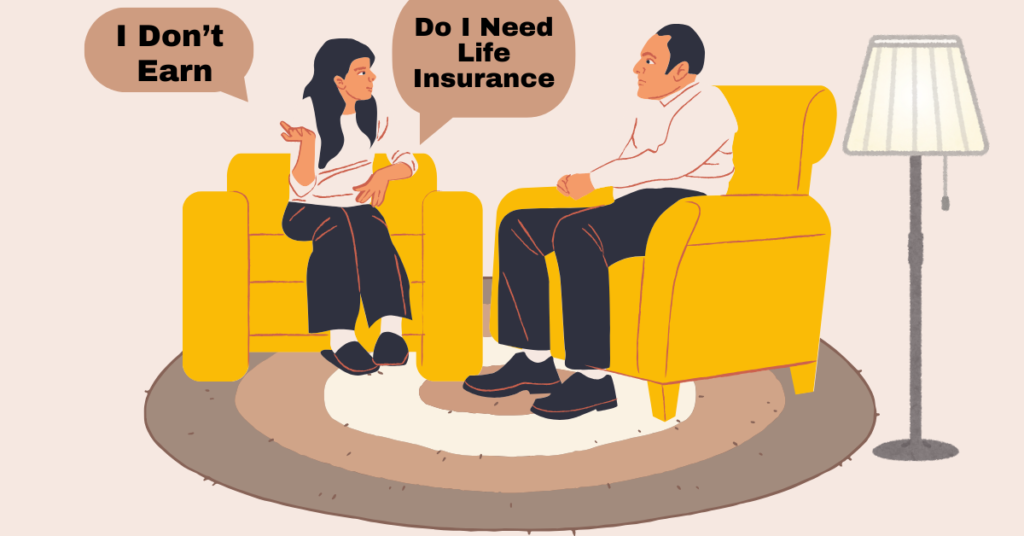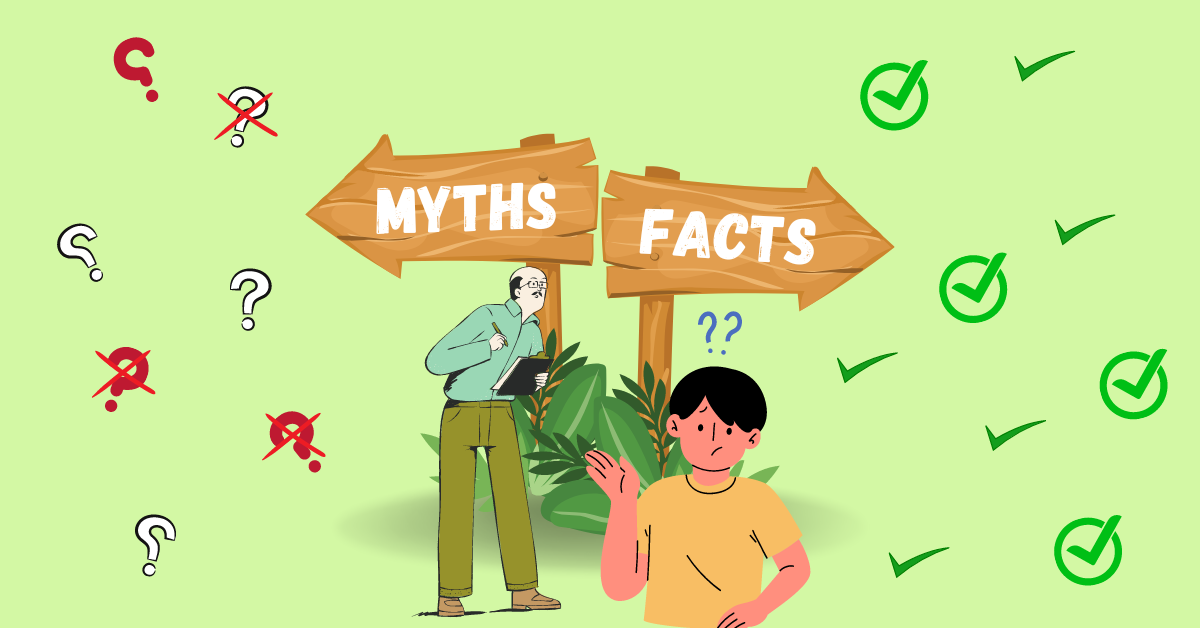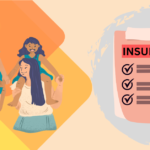Undeniably, life insurance is one of the most necessary financial tools available, yet this is commonly misconstrued by a good number of people. Whether it’s due to misconceptions, misinformation, or simply shying away from the discussion of death, people usually make choices on life insurance that do not meet their true requirements. As will be shown in this blog, the most popular lies are simply not true. Particularly, it’s essential to understand the reasons why these myths exist in the index of the policies to understand the better the risk management measures.
Table of Contents
Myth 1: You need life insurance only when you are at the brink of death
Myth
The age most young adults turn, they assume that this insurance is only necessary for older individuals – particularly, those who are starting to have dependants or borrowing on a housing loan. The thinking is that such a need does not come when still young and hail.
Fact
What this statement reflects however, is the fact that this insurance covers can indeed assist a person in nearly all stages of life. Yes, it is indeed true that older people who has dependants in most cases will have larger cover ups needed somewhere else, and yes there are benefits associated with buying life insurance at an early age especially for healthy young people.
- Low Premium: It is cheaper for those people who are younger and healthier when applying for one. Given that you can obtain a lower rate at a young age, it is possible to save thousands of dollars over a lifetime policy.
- Financial Security: Even though a person is single, there are in most cases financial responsibilities to be met such as student loans, mortgages, and other debts. Burst it can be used to ensure that these debts do not get passed down to your family members.
- Wealth Accumulation: Whole life and universal life are types of permanent life insurance takers, which allows a policyholder to build savings over the years on cash value. This overcoming factor can be a retirement fund or in the form of savings for emergencies.
Therefore, people have been delaying getting insurance until they are old enough to consider it as an option. Doing it earlier can mean some financial safety from that aspect in the present and in the years to come.
Myths 2: As A Single Individual, I Don’t Need Life Insurance
Myth
Most individuals who are single do not need this insurance because no one is dependent on their income. There is no need to leave the children who are dependent on them.
Fact
It is understandable that no dependents are there, however, there are still several reasons as to why singles should and go for an insurance of life.
- Burial Obligations: If you have student loans, credit card debt, or a mortgage, then it could take care of these obligations if something were to happen to you. This way, your family or friends will not have to cope with the debts left by you.
- Expenses of Funeral: An average funeral is quite expensive and it is possible to purchase this life insure package to help with these expenses for the sake of loved ones who otherwise may have to bear this financial worry in difficult times.
- Death Benefits: If you are interested in passing some of the assets to other people or charities, then this insurance is a reasonable asset to ensure the right distribution of the remaining assets.
Even if you have neither a spouse nor any children, a insurance policy of life can be a very beneficial financial tool to secure your peace of mind, as well as protect your legacy.
Myth 3: Too costly to get life insurance

Myth
Many individuals did understand that life insurance is something that they would have to pay for at some point, but their concern was that it was too expensive. This myth is sometimes responsible for some individuals refraining from taking any form of insurance coverage or opting for very limited insurance cover that is inadequate.
Fact
Generally, life insurance can be less expensive than other products, more so for young healthy individuals. Life insurance pricing takes a variety of factors into account such as age, health, lifestyle choices and insurance policy. The following provides a breakdown of the reasons as to why life insurance is much cheaper than most people are used to.
- Term Life Insurance: This is one of the least expensive types of life insurance. A such life insurance policy covers a policyholder for a defined period of time, for example ten, twenty or thirty years and provides a death benefit feature but not the other characteristics of the whole life insurance. This concept of life insurance is provided for less premium, making it enough for them.
- Health and Lifestyle Factors: As you would expect, the healthier you are and the less risky your lifestyle is (non-smoker, no dangerous hobbies), the cheaper it is.
- Shop Around: You should always check and compare policies and providers in order to get the lowest possible rates. The differences between life insurance policies can be significant depending on the company and as such, costs greatly vary, thus, it is important to secure the most economical policy that is favorable for you.
Life insurance is, in most instances cheaper than many people think. For this reason, and the financial security it gives, it is a worth investment.
Myth 4: You don’t Need Life Insurance if You are Healthy
Myth
There are some men and women who think that healthy people do not require life insurance because there is a fear of dying at a young age. Although in good health helps to live longer, it does not imply having no need for life insurance.
Fact
No matter how fit you are today, it doesn’t ensure your health in the future as well. Accidents, sudden diseases, or conditions that are incurred later in life are always a possibility, and so having insurance can bring about reassurance in case something happens.
- Lock in Lower Rates: In most instances, if you buy life insurances when healthy, you pay less. If you take an insurance when healthy, it implies you will be covered for a number of years.
- Accidents and Sudden Illnesses: Everything can’t also be as planed and disorder is normal in life. Any healthy people can suffer from accidents, health issues or severe illness. However, all of these can be insured using life insurance to protect the family financially in case the worst situation strikes.
All in all, life insurance is there for the protection of the economical risks that come with uncertainty, and being in good health makes it simply cheaper.
Myth 5: Only the Earning Member of the Family Needs Life Insurance

Myth
The belief that only the primary breadwinner of the house needs Life Insurance is a widespread error. Often, the bread-winning CLN leaves families need Life Insurance, and they are the ones who later on, take second that hold the household down.
Fact
To begin with, it cannot be denied that loss of a breadwinner has far reaching implications with regard to income; however, this myth fails to come to the attention of how other family members, especially stay-at-home parents or caregivers fulfill these gaps.
- Stay-at-Home Parents: If you are a stay-at-home parent, your contribution covers aspects such as external caregiving, running specialized tasks in the house among other very valuable duties that one has to do in the house which will have financial implications were they to cease doing it. Funding life insurance can also cater for the costs of hiring help as well as other additional expenses.
- Caretakers of Elderly Parents: In the event that you are a caretaker of elderly parents or relatives, insurance makes it possible to ensure that the quality of care, for instance, hired help is maintained in your absence.
Insurance in the form of life cover is relevant for all individuals looking after others and helping meet their expenses and not only for the main income earner.
If you are also researching for health insurance then check this.
Myth 6: All Life Insurance Policies Are the Same
Myth
The fact is that most people think that all life insurance policies are pretty much the same, and one only has to choose a policy they are willing to afford. It can however be appreciated that the various business policies available in life insurance may be quite different in terms of extent of coverage provided, terms and additional costs.
Fact
On the whole, there are two basic types of life insurance policies:** term life** and permanent life. These elements too have their advantages, and they may be changed according to your requirements.
- Term Life Insurance: This type of insurance is offered for specified periods of years such as 10, 20 or 30 which also renders the premium rate lower than others. It assures compensation only in case of death within the on-going premium policy and lacks cash value.
- Permanent Life Insurance: In this policy, there are also whole and universal life policies which give lifelong security and cash value benefits. The cash value accumulates over the years and can be used as a loan or in satisfying other needs.
Further, various riders can also be taken with a majority of the policies whereby, adding value to the policy: eg. fatality benefits for critical illness etc; or benefits for the purpose of disablers etc. Grasping the distinctions between these policies and riders is necessary in order to pick the most beneficial plan for yourself.
Myth 7: There Are No Changes Possible Following The Purchase Of A Life Insurance Policy
Myth
It is a belief of some people that once they make their purchase of any life insurance plan, it becomes unchangeable and can’t be altered. They think any changes will involve the presentation of an entirely new plan, or will be just far too complicated to accomplish.
Fact
Generally, there are possibilities for modifying certain life insurance policies in the course of time. Depending on the type of policy, you may be able to:
- Increase or decrease coverage: Any alteration in a person’s dependent or financial situation often provides an opportunity for alteration of the coverage.
- Convert term to permanent: Other insurance policies known as term policies provide an option to be changed into permanent life insurance if a client has changed, hence needs a change.
- Add riders: Life insurance riders are extra provisions that can modify your policy, such as income to the insured in case of accidents and sooner than expected multiple triggers due to illnesses.
Nevertheless, one should stress the fact that life insurance policies should not be the one-off products which are purchased and not reviewed anymore. Life insurance policies tend to be relatively flexible and allow adjustments to be made in accordance with the changing dynamics of an individual and as such, they are recommended to be reviewed from time to time.
Myth 8: Life Insurance Is Only for People with Dependents

Myth
There are people who see the need for taking out life insurance cover when one has children or a spouse, dependent on their income. This assumption overlooks many of the other ways life insurance can be taken advantage of.
Fact
In various circumstances life insurance comes in handy and not only in the situations when there are people who depend on you:
- Covering Debt: There might be active loans and other credit instruments, and a insurance policy of life can always take care those debts and not pass them to the family.
- Wealth Transfer: Even without dependents, it is possible to purchase life insurance in order to have money to give out to nonprofit organizations or your friends or relatives.
- Expenses related to death: This insurance can help to mitigate the costs of funerals and burials, which is a heavy dent on the family finances at a very distressing period.
This is how an insurance guarantee financial freedom irrespective of whether one has dependants or not.
Conclusion
Life insurance is one of the most important investments one can take up, yet many general assumptions about it are incorrect. The misconceptions outlined here tend to be some of the key reasons why people do not manage to evaluate their coverage accurately. We have set out to tackle these misconceptions so that you can see things more clearly and more justifiably act regarding your family’s needs.
Young or old, single or married, healthy or having health issues, it can help ensure financial independence, security and offer an assurance that one’s loved ones are well taken care of. Do not allow myths or other hatred perceptions prevent you from getting the right cover. It is critical to conduct an assessment, engage a financial advisor and go for the life insurance scheme that will suit you.







1 thought on “Factors In Life Insurance And Their Importance In Your Areas Of Coverage”